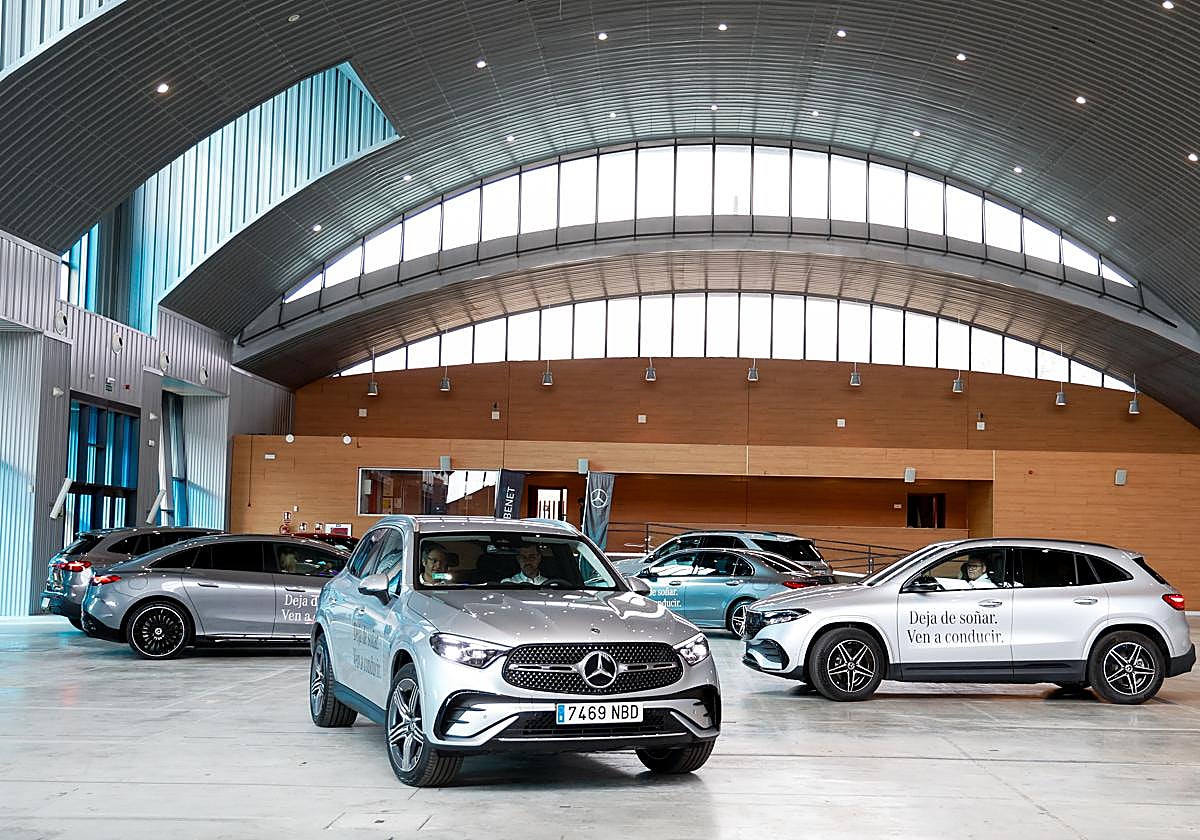Sustainable mobility as an opportunity to improve people's lives
Sponsored by Caetano Benet Mercedes-Benz, Diario SUR held an event to highlight the benefits of 100% electric and plug-in hybrid vehicles
SUR in English
Alhaurín de la Torre
Wednesday, 28 May 2025, 16:55
Alhaurín de la Torre played host to the ‘Sustainable mobility: innovation at the wheel. Exploring the Mercedes-Benz hybrid and 100% electric experience’ event last Friday, 23 May.
The event, which took place at the Edificio Para La Promocion De La Ciudad Aeroportuaria (city airport promotion building), was organised by Diario SUR and sponsored by Caetano Benet Mercedes-Benz, the only authorised Mercedes-Benz dealership in the province of Malaga.
Caetano Benet Mercedes-Benz aims to help anyone interested make the move towards more sustainable mobility through its range of 100% electric and plug-in hybrid vehicles. It has dealerships in Malaga city (Ciudad Caetano and Ciudad Jardín), Fuengirola, Marbella, Antequera and Vélez-Málaga.
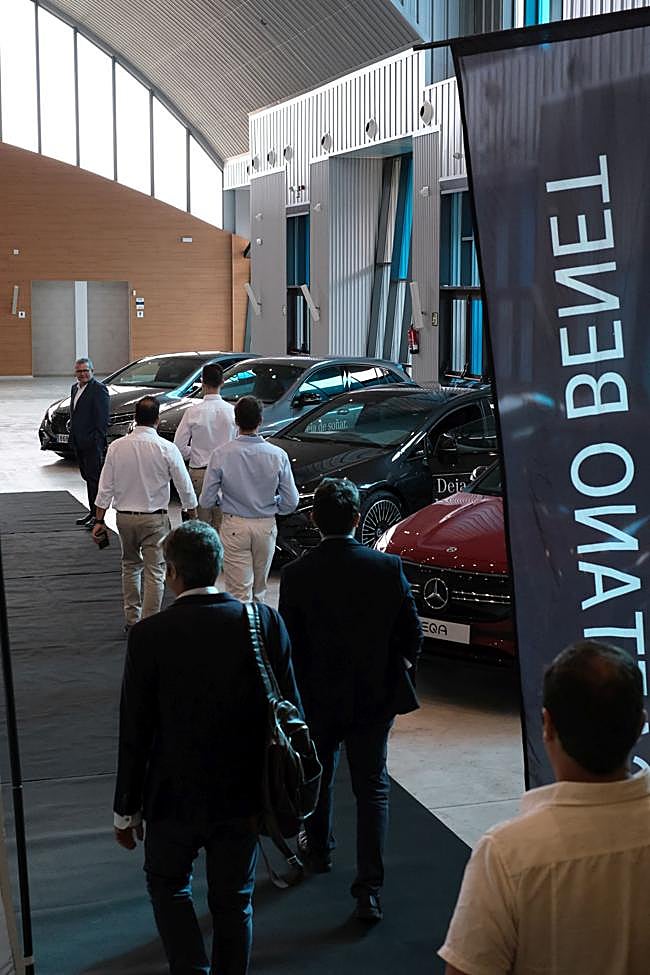
Throughout its history, Mercedes-Benz has consistently delivered the kind of vehicles people dream of driving. Staying true to its commitment to global wellbeing, progress and a new way of moving, the brand has set a new course towards a future defined by fully electric vehicles. This strategy has established it as a market leader in electrified models, offering the broadest range of 100% electric and plug-in hybrid vehicles (including diesel versions) available today.
In this movement towards sustainable mobility, Mercedes-Benz is also leading the way in technology and innovation. Its latest generations of vehicles feature MBUX with voice control and artificial intelligence, the most advanced driver assistance systems, and countless customisation options such as 4D sound systems and Dolby Atmos.
"Stop dreaming. Start driving"
Caetano Benet Mercedes-Benz delivered the experiential part of the event by organising a test drive for attendees with the latest plug-in hybrid and 100% electric models from Mercedes-Benz. These included the EQA, EQE, plug-in hybrid GLE, plug-in hybrid GLC, EQS and plug-in hybrid C-Class.
Under the slogan ‘Stop dreaming. Start driving’, more than fifty attendees enjoyed an unforgettable driving experience. They got a first-hand feel for the sophistication and comfort of these vehicles and saw the strength of Mercedes-Benz’s commitment to decarbonisation and sustainable mobility.
With a wide range of models and options to suit every taste and driving style, the future of driving is already here. Caetano Benet Mercedes-Benz encourages the people of Malaga to visit any of its dealerships and turn their dream into reality by discovering these vehicles’ outstanding performance for themselves.
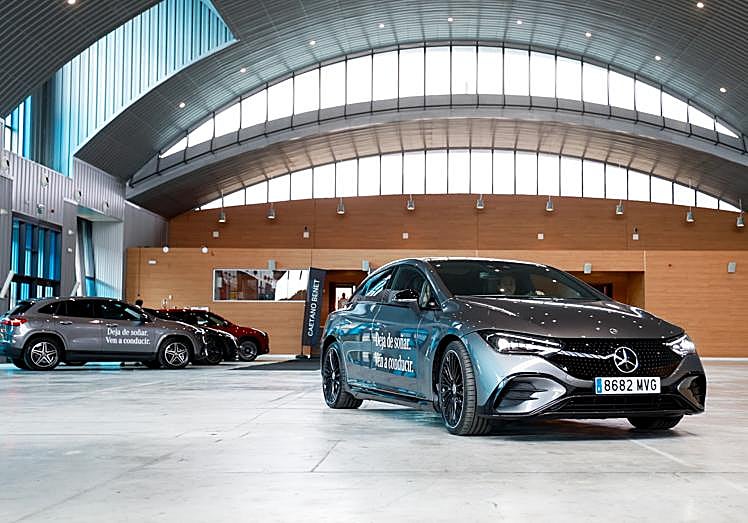
Zoom

The challenge of bringing sustainable mobility to every corner of the province
The event also included a round table discussion on the key issues in sustainable mobility. Speakers included Cristóbal Ortega, provincial councillor for Environment, Inland Tourism and Climate Change at the Diputación de Málaga; Carlos Pérez, Head of Residential Charging at Iberdrola; Jorge Quesada, CEO of Quesada & Pastor Consultores and a specialist in mobility and the environment; and Santiago Palanco, Assistant Vice-Dean for Sustainability at the University of Malaga (UMA). The discussion was moderated by journalist Celia Bermejo.
During the round table, Cristóbal Ortega highlighted the challenge the provincial council faces in “bringing sustainable mobility to every corner of the province, working with smaller town councils to install electric charging points in areas such as the Axarquía and the Serranía de Ronda, so that the lack of infrastructure is no longer an excuse not to visit them.”
He also noted that the council is developing mobility plans across districts and municipalities, stressing the importance of creating a unified provincial strategy. “In many cases, these mobility plans don’t require large investments, just small actions like pedestrianising certain streets, improving accessibility or introducing shuttle buses that encourage people to leave their cars at home,” he explained.
Ortega also pointed out that some districts, including the Axarquía and Guadalteba, have already completed their mobility plans. “Once all the areas in Malaga province have theirs in place, we’ll be able to build a provincial mobility strategy that identifies shared issues and addresses long-term solutions,” he said.
Quesada & Pastor Consultores has become a key player in the development of sustainable mobility plans and has worked with some of the largest municipalities on the Costa del Sol. “These plans are tools to improve how people move around. Town councils are the main agents of change here, and they now need to shift their thinking. Urban planning has always prioritised vehicles while sidelining pedestrians. The new mobility plans aim to make travel safer and more sustainable, moving away from private car use wherever possible. They propose measures such as replacing old combustion engine fleets with plug-in hybrids or fully electric vehicles,” explained the firm’s CEO.

Zoom

Santiago Palanco, meanwhile, announced that the University of Malaga is rolling out a Sustainability Plan that includes actions such as promoting personal mobility, introducing low-emission zones and building solar plants. “We’re leading a truly pioneering process. We’ll be the first university in Spain to put 100 per cent of its electricity supply infrastructure out to tender, opening it up to specialised companies in the sector. Just with the starting bid price, we’re already achieving savings of 2.7 million euros,” he revealed.
Malaga, one ot the provinces with the highest number of electric vehicle charging points
Carlos Pérez highlighted that Malaga “is one of the parts of Spain where Iberdrola has installed the highest number of public charging points for electric vehicles – more than 250.” In total, there are currently 811 public charging points across the province, ensuring broad availability. Drivers are never more than 50 kilometres from a place to recharge their vehicle.
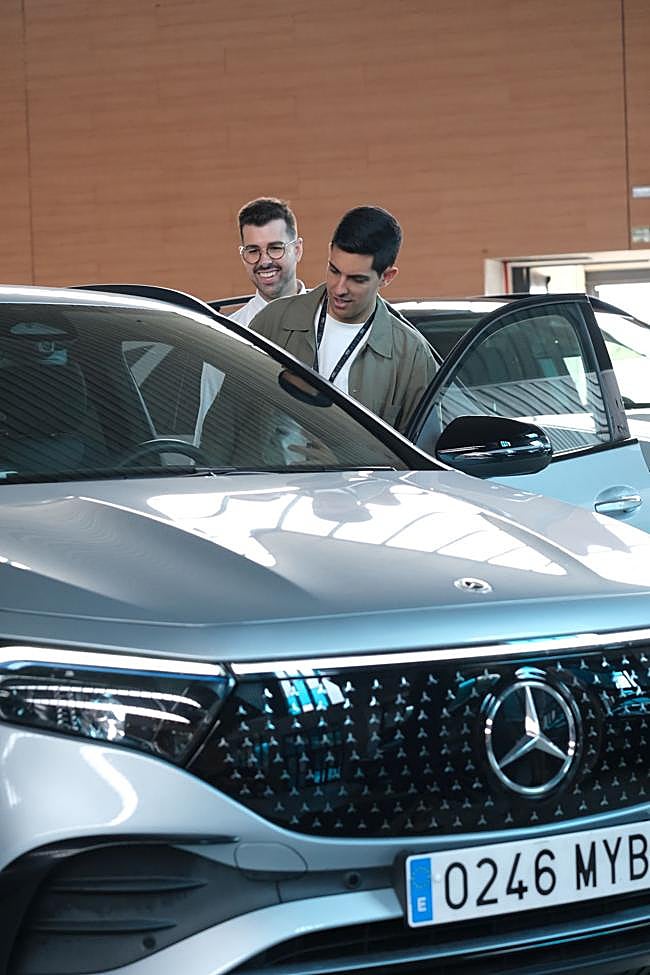
The Head of Residential Charging at Iberdrola announced that the company has planned an investment of over one billion euros to increase the number of charging points nationwide. “This investment effort has two aims: to serve electric and hybrid vehicle users, and to raise awareness. It’s important to spread the message about the benefits of sustainable mobility and show users just how many public charging points are already available to them,” Pérez explained. However, he noted that the best type of charging “is always the one done while parked, whether in a public or private car park, although roadside chargers remain a useful option for quick top-ups.”
Cristóbal Ortega added that, as part of the council’s internal sustainability strategy, they have observed that “the number of provincial council employees driving electric or hybrid cars has quadrupled in recent years.” He also stressed the importance of “tackling fake news and the smear campaigns that sustainable mobility often falls victim to.”
“At Iberdrola, we believe the shift towards new mobility is unstoppable. By 2035, most users will choose electric vehicles not because they’re forced to, but because of the countless benefits they offer in terms of cost savings, safety, technology and the driving experience, which is smoother, quieter and more enjoyable,” Pérez said.
Misinformation around low-emission zones
Low-emission zones (ZBEs) are a key issue in the debate on sustainable mobility. In Malaga city, the ZBE covers 437 hectares and limits access to less polluting vehicles. It mainly includes the historic city centre, the Soho district and roads such as Paseo Marítimo Antonio Machado, Avenida de Andalucía, Calle Compositor Lehmberg Ruiz, Calle Hilera and Paseo Marítimo Pablo Ruiz Picasso, among others.
Fines for driving in the zone without the proper environmental label or without authorisation will be 200 euros. These penalties will come into effect from 1 July, with infringements detected using cameras and monitoring systems that identify number plates. Vehicles with Zero, ECO and C environmental labels will be able to enter without restrictions. From July onwards, vehicles without these labels (typically petrol vehicles registered before 2000 and diesel vehicles before 2006) that are not registered in Malaga will be banned from entering.
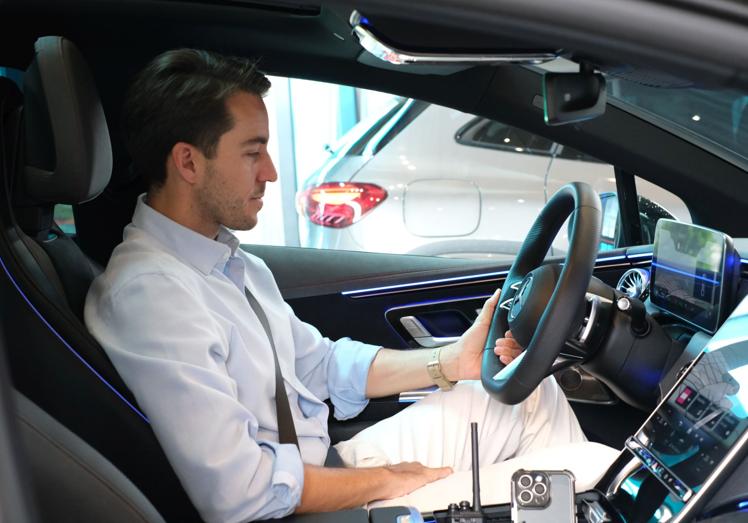
Zoom

Outside of Malaga city, low-emission zones have also been implemented or are being developed in other municipalities, including Estepona, Marbella, Fuengirola, Mijas, Vélez, Rincón, Benalmádena and Torremolinos.
In Estepona, the ZBE will cover 60 hectares, be introduced gradually and from 1 January 2026, only vehicles with a Zero or ECO label will be allowed into the town centre. Marbella town council recently announced that it will only activate low-emission zones in areas where high levels of pollution have been detected using sensors. In Fuengirola, the ZBE will cover 18 public areas across more than 100,000 square metres and will come into effect in 2026. In Mijas, the ZBE will be limited to Mijas Pueblo and will not affect local residents or business owners. No start date has yet been set. In Vélez-Málaga, the ZBE will include the historic centres of Vélez-Málaga and Torre del Mar, and is expected to be introduced this year, although no exact date has been given. In Rincón de la Victoria, the zone will be located around Plaza de la Constitución, with local regulations expected to be approved in the final quarter of 2025. In Benalmádena, the ZBE is still being studied and has not yet been defined.
And in Torremolinos, the ZBE came into force in January 2024, covering 175,000 square metres of the town centre. Vehicles with 0, ECO and C environmental labels can circulate without restrictions. Vehicles with a B label are subject to time-based access limits, while vehicles without any label are banned. Since 15 February, fines of 200 euros have been issued to non-compliant vehicles driving within the zone.
Jorge Quesada warned that “low-emission zones are always controversial and, unfortunately, often stir up strong public reaction: mobility can make or break local governments”. He pointed out that the 2021 Climate Change Act “makes it mandatory to introduce these cleaner-air zones in towns with more than 50,000 residents, of which there are 14 in the province of Malaga. Explaining this to the public is always difficult because changes at first feel drastic, and misinformation and scaremongering often get in the way of measures that are ultimately meant to benefit people and improve quality of life”.
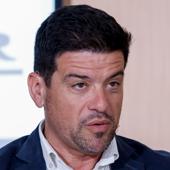
“The general public needs to start seeing sustainable mobility as an opportunity, not a problem”
Cristóbal Ortega
Councillor for Environment, Inland Tourism and Climate Change, Malaga provincial government (Diputación)

“Local councils are the main agents of change in the shift towards sustainable mobility”
Jorge Quesada
CEO of Quesada & Pastor Consultores

“UMA is the first Spanish university to put 100 per cent of its electricity supply facilities out to tender”
Santiago Palanco
Deputy Vice-Rector for Sustainability, University of Malaga

“By 2035, most users will prefer electric vehicles not because they’re forced to, but because of the countless advantages they offer”
Carlos Pérez
Head of residential charging, Iberdrola
“One of our campuses, El Ejido, is located within Malaga’s low-emission zone, and we’re seeing that many students and lecturers are concerned precisely because of this misinformation,” noted the vice-rector.
Carlos Pérez explained that Iberdrola is placing a strong focus on “making the charging experience as quick and efficient as possible for users”. One step in this direction is the development of an app that shows the location of the nearest charging points.
“The general public needs to start seeing sustainable mobility as an opportunity, not a problem. We must move beyond the negativity surrounding concepts like low-emission zones or 100% electric and plug-in hybrid vehicles. Maybe we’re not communicating this well enough, and some legislation may come across as abrupt. But these doubts and hesitations are holding us back from the direction the planet needs,” the provincial councillor concluded.
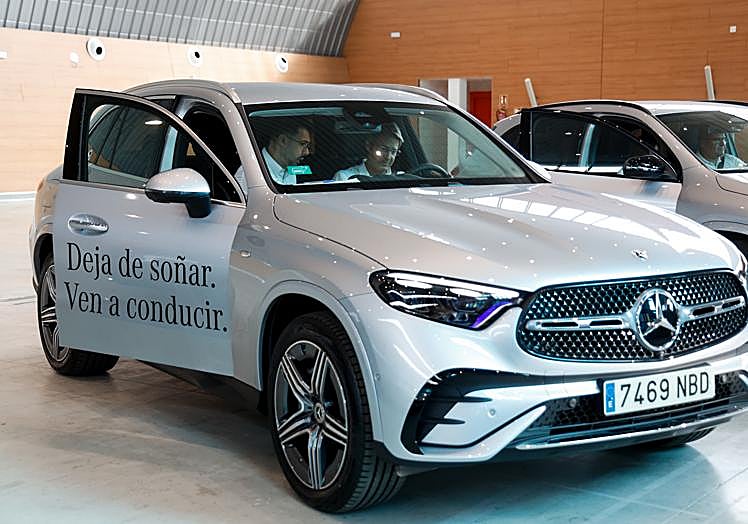
Zoom

“With 100% electric or plug-in hybrid vehicles, we’re no longer facing the lack of variety we saw a few years ago. Today, there are enough options to meet each user’s needs, as we’ve seen in the test drives offered by Caetano Benet Mercedes-Benz,” Carlos Pérez added.
